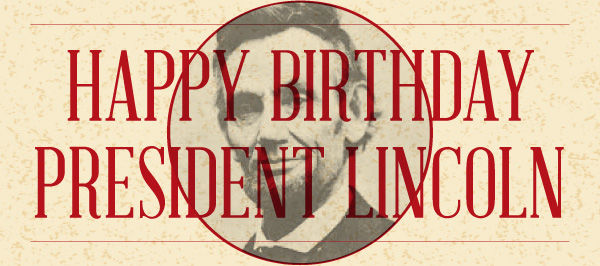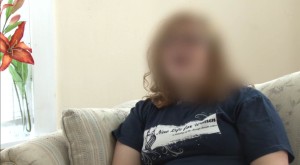 “From when I met him when I was 12, he set me up. The whole five years was nothing but a setup.”
“From when I met him when I was 12, he set me up. The whole five years was nothing but a setup.”
By 17 years old, Maria had experienced more than many ever will in their lifetime. Her mother was drug addicted and her father had a new family, both were only involved in her life intermittently, if at all. Maria and her sister were left to raise their younger siblings.
“I had to start selling drugs because that’s the only way I knew how to make money.”
When she was 12 years old, Maria met Luis*, a guy she described as “cute” and “sweet.” He showed her comfort, protection, and support she had never known and she fell in love with him. Because Luis was deeply gang-involved, Maria was forced to join his gang through an initiation process she recalls was “nothing pretty.” Maria soon became pregnant.
“He was sweet. He was so sweet when I first met him. Six months after we had been living together, he just flipped a switch, like a light switch.”
Despite Luis’ violence, Maria stayed. She believed she loved him and felt a bond with him because she had joined his gang and was carrying his child. The violence developed into exploitation. Luis began selling Maria for sex. On the weekends, she was taken to parties with a room full of men waiting their turn in line to have sex with her.
Part of me was so angry and so sad. I felt I was so lost. I didn’t know what to do. I had to numb myself. I was drinking every day, getting high. I didn’t know what to do besides numb it so I didn’t have to feel it.
Maria lived under the rigid control of the gang. She wasn’t allowed to see family or friends, leave the house, have money, or go to school. She didn’t have a choice over when to wear makeup, do her hair or what she wore. If Maria was allowed to drive Luis to work, he checked the mileage on the car to ensure she drove straight home.
I would sneak around to see my sisters and my brothers because I couldn’t give them up. And then I’d get beaten in for it. But after a while, I did cut it off completely, and a part of me died inside because I had no connection with them.
To the gang, Maria was a financial investment, a commodity to earn money for the gang. Her contribution to the gang was her body – used to carry drugs from Mexico to the U.S. and sold to men for sex. The comfort and protection of the gang she had dreamed about years earlier was a far cry from the violence and danger she experienced.
After a while, I felt I needed to fight people just because I had so much anger built up towards him. I took it out on everyone that got in my path.
She had opportunities for help, but her status as a victim was not recognized. Maria was taken to juvenile detention centers numerous times; however, each time she was directed into programs that addressed her violent behavior or substance abuse. She masked her victimization and used coping mechanisms like drugs and alcohol to numb her from the violence and pain.
They couldn’t see that I needed help or that I wanted help because I was so numb, because I was always drinking. I was always high. I had to numb myself because there was no way that I could possibly continue on without wanting to kill myself, without being numb. A lot of times I’m just so out of it that nothing mattered. It was like I was blank. I don’t think that they could even tell how I was feeling.
After five long years of abuse, Maria turned to a childhood friend for help the summer she turned 18. She hid in the safety of his basement, abandoned by her family, criminalized by the justice system, and having just lost connection to the only group and life she had known for the past five years, but free. Through the help of a local outreach organization, Maria was able to access long-awaited services to help her process the transition from a life of constant fear, violence and exploitation to a life of freedom. Several months later, multiple gang leaders, including Luis, were arrested and sentenced to spend their life in prison for murder, further solidifying her feeling of freedom and safety.
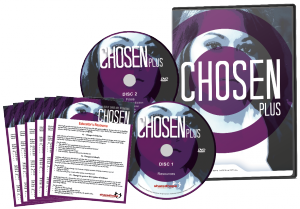
Today, Maria serves as a mentor for girls who are trying to escape gangs and trafficking. She shares her story in an effort to prevent others from joining a gang and support those seeking escape. She plans to return to school to pursue her dream of becoming a veterinary technician.
Maria’s story is featured in Chosen Gang Edition, a youth sex trafficking prevention video to teach teens the warning signs of trafficking and dangers of joining a gang.
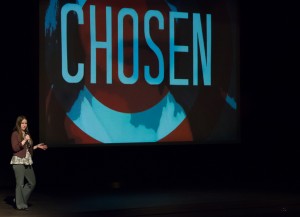 On March 5-6, Shared Hope joined the Tacoma Public School District to provide youth sex trafficking prevention education to students, counselors, educators, administrators and principals using the prevention film, Chosen. The film and resource package are based on the true stories of two Washington teenage girls who were targeted by traffickers. They explain how the traffickers used common techniques like flattery, affection, gifts, promises of fulfilled dreams and adventures, financial stability and isolation to recruit them into the horrifying world of commercial sex.
On March 5-6, Shared Hope joined the Tacoma Public School District to provide youth sex trafficking prevention education to students, counselors, educators, administrators and principals using the prevention film, Chosen. The film and resource package are based on the true stories of two Washington teenage girls who were targeted by traffickers. They explain how the traffickers used common techniques like flattery, affection, gifts, promises of fulfilled dreams and adventures, financial stability and isolation to recruit them into the horrifying world of commercial sex. 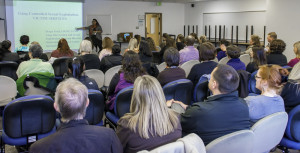 The events culminated on March 7 with a gang sex trafficking training for professionals. Through a partnership with the Washington State Criminal Justice Training Commission, over 160 Washington law enforcement, prosecutors and social service providers attend a free training on gang sex trafficking. The training equipped attendees to advance cases against gang trafficking, dismantle criminal operations, and provide appropriate services to gang-involved trafficking victims in an effort to improve the identification and response to victims of juvenile sex trafficking.
The events culminated on March 7 with a gang sex trafficking training for professionals. Through a partnership with the Washington State Criminal Justice Training Commission, over 160 Washington law enforcement, prosecutors and social service providers attend a free training on gang sex trafficking. The training equipped attendees to advance cases against gang trafficking, dismantle criminal operations, and provide appropriate services to gang-involved trafficking victims in an effort to improve the identification and response to victims of juvenile sex trafficking.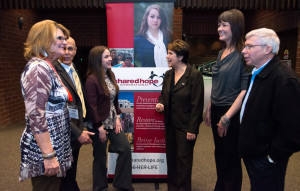 It was an important week of training and education in Washington! While we can’t make it to every city, you can access the same training and education! Order your copy of Gang TRAP (professionals) or Chosen Plus (available Monday, March 17) to receive the same information on youth sex trafficking prevention and gang trafficking!
It was an important week of training and education in Washington! While we can’t make it to every city, you can access the same training and education! Order your copy of Gang TRAP (professionals) or Chosen Plus (available Monday, March 17) to receive the same information on youth sex trafficking prevention and gang trafficking!